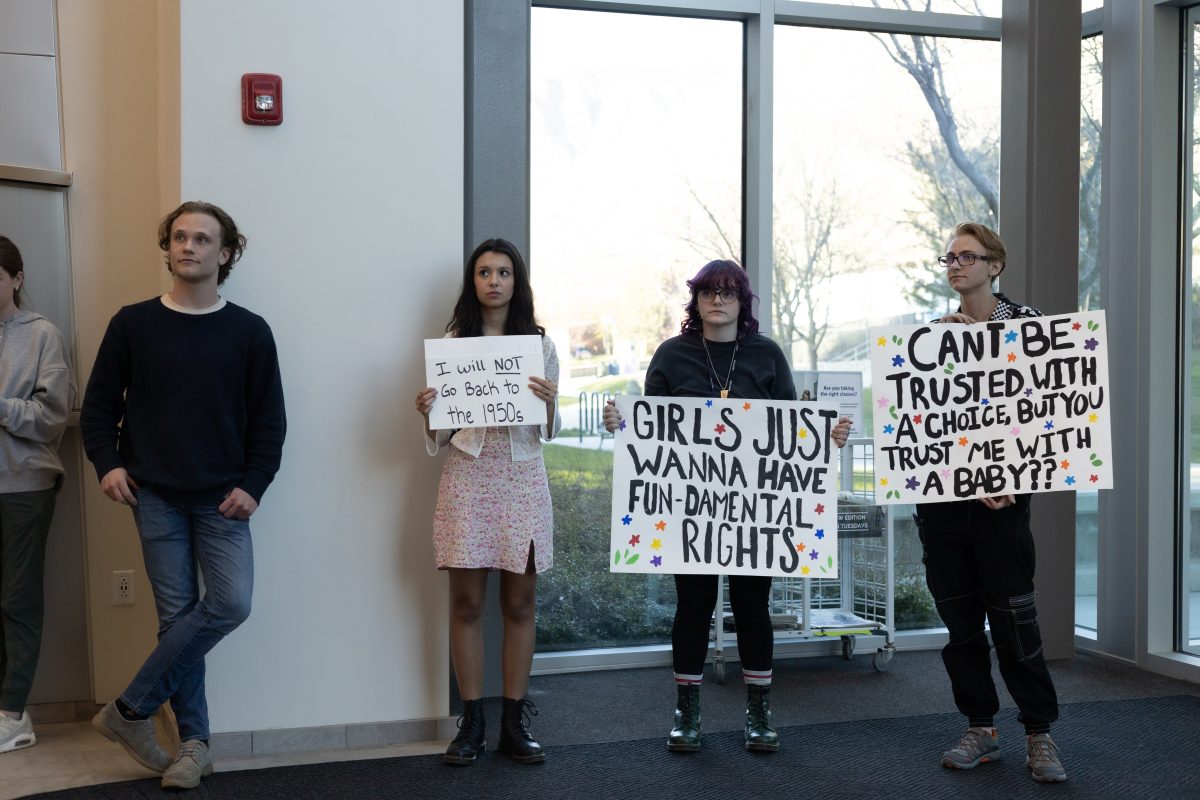The Wattis Business Building’s Smith Auditorium filled to standing room only on Friday afternoon as Weber State University President Charles Wight gave a report on

the results of the 2013 Utah State Legislative Session and how WSU will be affected by legislation.
“You don’t want to know how complicated this was,” Wight joked of the legislative process and WSU’s involvement.
The biggest item was the announcement that WSU has secured $3.5 million designated for design funding to plan a new science lab building for the Ogden campus.
“This is planning money,” Wight said. “We had some hope of getting the entire $60 million appropriation, but what this does is makes a political commitment by the legislature that next year they will provide the remainder of the funding for construction.”
Wight said the coming year will be spent planning, designing and programming for the building. Starting in July 2014, WSU can anticipate another $57 million or so for construction.
“There’s a lot of money that’s going into this project, and it’s going to take a few years to get it completed, but this is a political commitment by the legislature to get it done, and we’re very, very happy about it,” Wight said.
Another allocation for WSU includes a one-time appropriation of $250,000 for the Olene S. Walker Institute for Political Science.
“That actually wasn’t on the regent’s priority list, but Governor Walker is really good at this,” Wight said, “so we got a quarter-million dollars.” The crowd laughed in response.
Brad Mortensen, vice president for university advancement, also presented further information from the legislative session, specifically of interest to WSU and its community, such as what house and senate bills might have an effect on WSU.
Mortensen said House Bill 28 passed and dealt with campus safety amendments. According to Mortensen, WSU worked with other schools throughout the state to clarify some of the fuzziness dealing with campus safety, such as when police officers can charge individuals with trespassing on campuses and when people can carry firearms on campus.
Related to firearms, Mortensen said House Bill 76 is one that passed that allows for carrying unloaded firearms regardless of any kind of permits or certifications.
House Bill 139 passed and is focused on public education of science, technology, engineering and math.
“There really is a concentrated effort in the state to try to build up the STEM pipeline starting in the elementary-aged schools on up,” Mortensen said.
Senate Bill 51 passed and deals with higher education tuition waivers. Mortensen said this bill will help WSU offset some of the impact that the missionary changes have had and will allow for the recruitment of out-of-state students a little more easily.
“Before, we had a set number of out-of-state waivers that we could award — 135,” Mortensen said. “But now it takes off that limit and allows us to waive the nonresident portion of tuition for as many students as we feasibly budget for.”
House Bill 254 passed and deals with college credits for veterans. The bill now requires colleges and universities to grant college credit to veterans based on the competencies they have, identified by a national board. Mortensen said this is to try to give our veterans a chance to work their way through college more easily.
Though a lot of numbers and information were presented, Wight said WSU made out very well at 2013’s state legislative session.
“Overall, we got an approximate 5 percent increase in both our ongoing base budget and also in our long-term allocations, and that doesn’t include the planning money that we got for the science building, so that’s approximately an additional 5 percent on top of that,” Wight said. “We did very, very well. Better than we have in the last several years.”




















